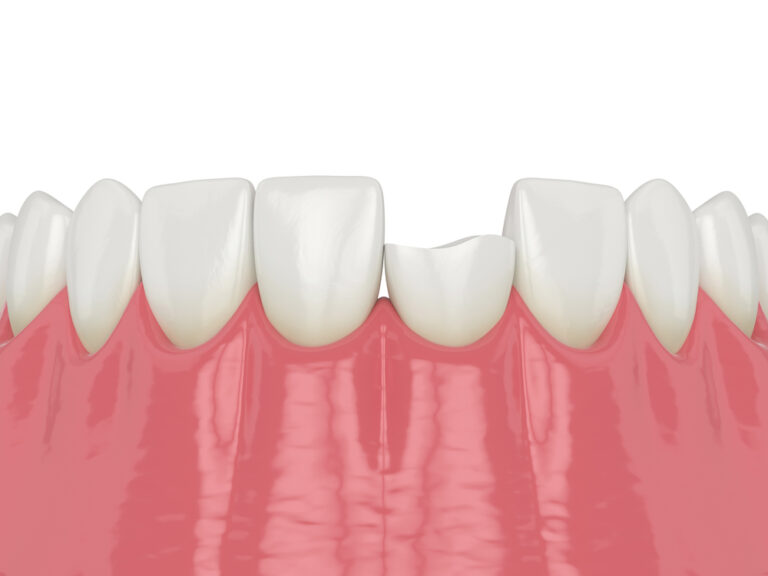If you’re experiencing pain in your mouth, especially in the back molars, it could be a sign that your wisdom teeth are coming in. Wisdom teeth are the last set of molars to emerge, usually appearing between the ages of 17 and 25. While some people experience little to no pain during this process, others can experience significant discomfort. So, how long does wisdom teeth pain last when coming in?
The answer varies depending on the individual. Some people may only experience mild discomfort for a few days, while others may have more severe pain for several weeks. The amount of pain you experience can also depend on whether your wisdom teeth are impacted or not. Impacted wisdom teeth can cause more pain and take longer to emerge, while fully erupted teeth may cause only minor discomfort.
If you’re experiencing wisdom teeth pain, there are several things you can do to help alleviate the discomfort. Over-the-counter pain relievers such as ibuprofen or acetaminophen can help reduce pain and swelling. Applying a cold compress to the affected area can also help reduce inflammation. It’s important to maintain good oral hygiene during this time, as food particles can become trapped around emerging teeth, leading to infection and further pain.
Understanding Wisdom Teeth

Wisdom teeth, also known as third molars, are the last set of teeth to emerge in your mouth. They typically appear between the ages of 17 and 25, and most people have four wisdom teeth, one in each corner of their mouth. However, some people may have fewer or more than four wisdom teeth.
Wisdom teeth are not necessary for chewing or speaking, and in many cases, they can cause problems. Because they are the last teeth to emerge, they may not have enough room to grow properly, leading to impaction or crowding of other teeth.
In addition, wisdom teeth can be difficult to clean, which increases the risk of tooth decay, gum disease, and infection. For these reasons, many dentists recommend removing wisdom teeth before they cause problems.
If you are experiencing pain or discomfort in your mouth, it is important to see a dentist to determine the cause. Wisdom teeth pain can be caused by a variety of factors, including impaction, infection, or gum disease. Your dentist can examine your mouth and take X-rays to determine if your wisdom teeth are causing the pain and recommend the appropriate treatment.
In the next section, we will discuss how long wisdom teeth pain can last and what you can do to manage it.
The Process of Wisdom Teeth Eruption
If you’re experiencing wisdom teeth pain, it’s likely that your teeth are in the process of erupting. This can be an uncomfortable experience, but it’s a natural part of growing up. Here’s what you can expect during the different stages of wisdom teeth eruption:
Initial Stage
During the initial stage of wisdom teeth eruption, your gums may become swollen and tender. You may also experience some discomfort in your jaw. This is because your wisdom teeth are starting to push through your gums and into your mouth.
Active Eruption
As your wisdom teeth continue to grow, you may experience more pain and discomfort. This is because the teeth are actively moving through your gums and into their final position. During this stage, you may also notice that your gums bleed when you brush or floss your teeth.
Fully Erupted Stage
Once your wisdom teeth have fully erupted, you may still experience some discomfort. This is because your teeth may be pushing against your other teeth, causing some pressure and discomfort. However, this discomfort should gradually subside over time.
It’s important to note that not everyone experiences wisdom teeth pain when their teeth are erupting. Some people may have enough space in their mouths for their wisdom teeth to grow in without causing any discomfort. However, if you are experiencing pain or discomfort, it’s important to see a dentist to make sure that everything is okay.
Overall, wisdom teeth eruption is a natural part of growing up. While it can be uncomfortable, it’s important to take care of your teeth during this time to ensure that they grow in properly.
Duration of Wisdom Teeth Pain
 When your wisdom teeth start coming in, you may experience pain and discomfort. The duration of the pain can vary depending on several factors, including the position of the tooth and your overall dental health.
When your wisdom teeth start coming in, you may experience pain and discomfort. The duration of the pain can vary depending on several factors, including the position of the tooth and your overall dental health.
In general, wisdom teeth pain can last anywhere from a few days to a few weeks. The pain may be constant or intermittent, and it may be accompanied by other symptoms such as swelling, redness, and tenderness in the gums.
If your wisdom teeth are impacted or growing at an angle, the pain may be more severe and last longer. In some cases, the pain may even radiate to other areas of the head and neck.
To manage your wisdom teeth pain, you can try several home remedies such as applying an ice pack to the affected area, rinsing your mouth with warm salt water, and taking over-the-counter pain relievers like ibuprofen or acetaminophen.
If your pain persists for more than a few weeks or is accompanied by other symptoms like fever or difficulty opening your mouth, you should see a dentist or oral surgeon for further evaluation and treatment.
In summary, the duration of wisdom teeth pain can vary depending on several factors, but in general, it can last from a few days to a few weeks. If you experience severe or prolonged pain, it’s important to seek professional dental care to ensure your oral health and comfort.
Factors Influencing Pain Duration
When it comes to wisdom teeth pain, the duration can vary from person to person. Several factors can influence how long the pain lasts. In this section, we’ll explore some of the factors that can affect the duration of wisdom teeth pain.
Individual Pain Tolerance
One of the most significant factors that can influence how long wisdom teeth pain lasts is your individual pain tolerance. Some people have a higher pain threshold than others, which means they can tolerate pain for longer periods. If you have a low pain tolerance, you may experience more discomfort and pain during the wisdom teeth eruption process.
Tooth Position
The position of your wisdom teeth can also affect the duration of pain. If your wisdom teeth are coming in straight and have enough room to grow, you may experience little to no pain. However, if your wisdom teeth are impacted or growing at an angle, you may experience more pain and discomfort. In some cases, the wisdom teeth may even push against your other teeth, causing additional pain and discomfort.
Infection and Complications
Infection and complications can also affect how long wisdom teeth pain lasts. If your wisdom teeth are infected, you may experience more pain and discomfort. In some cases, the infection may spread to other parts of your mouth, causing additional pain and complications. Additionally, if there are any complications during the wisdom teeth eruption process, such as nerve damage, you may experience more pain and discomfort.
In conclusion, several factors can influence how long wisdom teeth pain lasts. Your individual pain tolerance, tooth position, and the presence of infection or complications can all affect the duration of pain. If you’re experiencing wisdom teeth pain, it’s important to speak with your dentist to determine the best course of treatment.
Pain Management Strategies

Dealing with wisdom teeth pain can be a challenge, but there are a variety of strategies you can use to manage the discomfort. Some of the most effective options include home remedies, over-the-counter medications, and professional dental care.
Home Remedies
If you’re looking for natural ways to relieve wisdom teeth pain, there are several home remedies you can try. Here are a few options to consider:
- Saltwater rinse: Swishing warm saltwater around your mouth can help reduce inflammation and ease pain.
- Ice pack: Applying an ice pack to your cheek for 15-20 minutes at a time can help numb the area and reduce swelling.
- Clove oil: Dabbing a small amount of clove oil onto the affected tooth can help numb the area and provide temporary relief.
- Tea bags: Placing a warm, wet tea bag on the affected area can help reduce swelling and soothe discomfort.
Over-the-Counter Medications
If home remedies aren’t providing enough relief, you may want to consider over-the-counter pain medications. Here are a few options to consider:
- Acetaminophen: This pain reliever can help reduce discomfort and fever, but it doesn’t have anti-inflammatory properties.
- Ibuprofen: This pain reliever has anti-inflammatory properties, which can help reduce swelling and ease pain.
- Aspirin: This pain reliever has anti-inflammatory properties, but it should be used with caution in younger patients due to the risk of Reye’s syndrome.
Always follow the dosing instructions on the label and talk to your doctor or dentist before taking any new medications.
Professional Dental Care
If your wisdom teeth pain is severe or persistent, you may need professional dental care to address the issue. Here are a few options your dentist may recommend:
- Extraction: If your wisdom teeth are causing significant pain or other dental problems, your dentist may recommend having them extracted.
- Antibiotics: If your wisdom teeth are infected, your dentist may prescribe antibiotics to help clear up the infection.
- Pain management techniques: Your dentist may be able to provide additional pain management techniques, such as local anesthesia or prescription pain medications.
Remember to always talk to your dentist or doctor about any concerns you have regarding your wisdom teeth pain. With the right strategies in place, you can manage your discomfort and get back to your daily routine.
When to Seek Professional Help
If you are experiencing wisdom teeth pain that lasts longer than a week or is accompanied by other symptoms such as fever, swelling, or difficulty opening your mouth, it is important to seek professional help. Your dentist or oral surgeon can examine your mouth and take X-rays to determine the cause of your pain and recommend the appropriate treatment.
In some cases, wisdom teeth may be impacted or infected, which can lead to more serious complications if left untreated. Your dentist may recommend antibiotics or even surgery to remove the impacted tooth. It is important to follow your dentist’s instructions and attend any follow-up appointments to ensure proper healing and prevent further complications.
Additionally, if you experience any unexpected side effects or complications from wisdom teeth removal surgery, such as excessive bleeding or severe pain, it is important to contact your dentist or oral surgeon immediately. They can provide guidance on how to manage your symptoms and prevent further complications.
Remember, it is always better to err on the side of caution and seek professional help if you are experiencing prolonged or severe wisdom teeth pain. Your dentist or oral surgeon can provide the necessary treatment and guidance to help you manage your symptoms and ensure a speedy recovery.
Frequently Asked Questions
How can I relieve wisdom tooth pain?
You can relieve wisdom tooth pain by taking over-the-counter pain relievers such as ibuprofen or acetaminophen. You can also apply an ice pack to the affected area for 15-20 minutes at a time to reduce swelling and numb the pain. If the pain is severe, your dentist may prescribe a stronger pain medication.
What are some home remedies for wisdom tooth pain?
Some home remedies for wisdom tooth pain include rinsing your mouth with warm salt water, applying a clove oil or vanilla extract to the affected area, and chewing on a piece of ginger root. You can also try applying a warm compress to the affected area to reduce swelling and numb the pain.
When should I see a dentist for wisdom tooth pain?
You should see a dentist for wisdom tooth pain if the pain is severe or persistent, if you have difficulty opening your mouth or swallowing, or if you have a fever or swelling in your face or neck. Your dentist will be able to determine the cause of your pain and recommend the appropriate treatment.
How long does it take for wisdom teeth to fully grow in?
It can take several years for wisdom teeth to fully grow in. They usually begin to emerge between the ages of 17 and 25, but some people may not develop wisdom teeth at all.
What are the symptoms of wisdom teeth coming in?
The symptoms of wisdom teeth coming in include pain or discomfort in the back of the mouth, swelling or tenderness in the gums, difficulty opening the mouth, and a bad taste or odor in the mouth. Some people may also experience headaches or earaches.
Is it normal to have pain when wisdom teeth are coming in?
Yes, it is normal to have pain when wisdom teeth are coming in. This is because the teeth are pushing through the gums and into the mouth, which can cause discomfort and inflammation. However, if the pain is severe or persistent, you should see a dentist to rule out any underlying issues.






